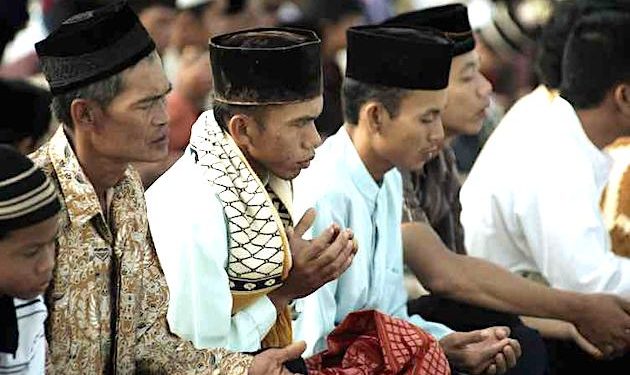- Social distancing is the rule for Muslims in Indonesia during this year’s Ramadan holiday.
- At the start of prayers on Tuesday, Moslems distanced themselves in mosques, in contrast to mosques that were closed last year.
- While COVID-19 cases remain high in Indonesia, the government has begun loosening restrictions as vaccines are being administered.
JAKARTA, Indonesia: Social distancing is the rule for Muslims in Indonesia during this year’s Ramadan holiday.
At the start of prayers on Tuesday, Moslems distanced themselves in mosques, in contrast to mosques that were closed during last year’s Ramadan due to the start of the pandemic.
While COVID-19 cases remain high in Indonesia, the world’s most populous Muslim nation, the government has begun loosening restrictions as vaccines are being administered.
For this year’s Ramadan holiday mosques were reopened, with strict rules to prevent the spread of Covid-19.
Similarly, Malaysia has eased its restrictions, allowing nighttime prayers, the reopening of open-air bazaars selling food, drinks, and clothing.
Last year, Indonesian authorities closed all mosques during Ramadan and clerics urged Muslims to pray from home during the holy month, rather than gather in mosques and other locations where they might risk spreading the virus.
For this year’s Ramadan, all mosques will continue to adhere to social distancing and other precautions, which will significantly reduce crowds, said Nasaruddin Umar, imam of Jakarta’s Istiqlal grand mosque.
“The heart of faithful Muslims is tied to the mosque… the longing for Ramadan lovers has finally been relieved today, although the pandemic has not yet ended.”, Umar said, as reported by the Associated Press.
Taking action prior to Ramadan, Indonesian authorities in Jakarta disinfected 317 mosques on Sunday, according to Jakarta Gov. Anies Baswedan.
Also, social distancing markers have been installed in mosques, and soap and hand sanitizers have been set out.
Unlike last year, Muslims will be allowed to gather for nightly “iftar” meals in restaurants, malls, and cafes during Ramadan. However, restaurants and other dining locations will only be allowed to serve 50 percent of their capacity, while following strict health guidelines.
“Easing restrictions is like a breath of fresh air for we who are tired by this COVID-19 outbreak,” said Anna Mardyastuti, a resident in Jakarta. “Yes, they should act to stop the virus, but not block the door to worship or to change our tradition of Ramadan entirely,” she told the Associated Press.






